
Elvis Zornoza, center, and his family.
Elvis Zornoza is a dedicated deaf advocate with over 10 years of service. Hailing from a deaf family, he embraces his deaf heritage and the rich culture of sign language. His personal experience has shaped his profound understanding of the challenges faced by the deaf community and drives his unwavering commitment to making a positive impact.
According to the Center for Research on Disability, by 2023, there were 1,183,000 Deaf or with serious hearing difficulties individuals in California, representing 3.1% of the total population.
Born in Guadalajara, Jalisco, Mexico, his family moved to the U.S. in 1982, landing in Compton and later moving to East L.A., where he felt at home. “It was such a vibrant Mexican community […] same food, same culture, same dress, that was amazing,” said Zornoza. Even though they were the only deaf family in his neighborhood, he cherished the connection with the community.
In 1990, he was presented with a life-changing opportunity to join the California School for the Deaf Riverside (CSDR), a pivotal moment that would forever reshape his path. Prior to that, his education in mainstream hearing schools had left him without the resources and support he needed, but CSDR opened doors to a world where he could fully embrace his potential and thrive.
“That changed my whole life,” he said. He shared that having deaf role models in sports and leadership transformed his identity, acknowledging how the experience transformed not only his educational journey but also his sense of self and belonging.
Committing to advocacy work
He began his advocacy work in Orange County at the Deaf Equal Accessible Foundation (DEAF) as a community advocate assisting individuals with navigating complex paperwork, such as Social Security applications, and educating them about their rights.
Having witnessed his mother struggle to access proper support, he understood firsthand the challenges deaf individuals face. As a child, he noticed that many advocates had difficulty understanding her, often misinterpreting her needs and failing to communicate effectively. As a result, she was frequently left without the assistance she required.
From the moment he started the job, he knew it was the perfect fit. Drawing from his experiences, he worked to bridge the gap in advocacy, ensuring better service through clear and effective communication. “I ask the customers what they want […] and try to align everything with what they need and with their rights. A lot of them did not realize what their rights were,” said Zornoza.
For him, the focus is on encouraging deaf people to become self-advocates. A significant aspect of his work involved assisting clients in navigating the Social Security system, as many deaf individuals rely on Social Security Disability Insurance (SSDI) but face communication barriers when interacting with the agency “because they don't understand English and the agents don't know sign language,” he said.
Zornoza explains that clients were often unaware of overpayments due to inadequate interpretation services—an issue that was the agency’s responsibility. Overpayments typically occur when a benefits recipient earns more money in their job than the allowed amount, requiring them to repay the benefits received during that period. He worked to have these fees waived while also exposing systemic failures, achieving a high success rate in these cases.
“I empowered […] my consumers, which is very important when advocating. I don't want them to be dependent on me. Like if a hearing person shows up, I don't want them to be dependent. [I’d rather they] advocate for themselves, to know their rights,” he said.

Deaf community activist Elvis Zornosa.
In 2004, he began working at theCenter of Deafness Inland Empire (CODIE) in Riverside, where he played a key role in developing various programs in collaboration with CSDR. As part of his efforts, he visited the school every Friday to educate students—particularly undocumented ones—on immigration-related topics. He provided them with crucial information about available pathways to apply for visas, permits and green cards. Additionally, he guided them on how to fill up the applications and conducted mock interviews to help them prepare for the U.S. Citizenship exam.
During this time, he actively participated in the Model Deaf Community initiative, which organizes an annual Deaf Awareness Day and Deaf Awareness Week. These events brought people together at Riverside City Hall to teach sign language, raise awareness about deaf culture and encourage greater community involvement in improving communication accessibility.
He also provided essential training to hospital emergency staff, police departments and first responders, recommending strategies for working with deaf individuals. By equipping these professionals with practical communication tools, he ensured they could better navigate interactions with patients, arrange necessary services and provide the appropriate care and support in critical situations.
The urgent need for information
“In today's world with the government and the leadership, you know, it's easy to panic,” he said. The activist notes that in the community, people often relay fragmented information to their families, unintentionally spreading misinformation. Despite his efforts to promote fact-checking, he faces a persistent challenge, adding “there's just not enough knowledge and education for them.”
Recognizing deaf individuals as an integral part of society is key. Zornoza stresses the need for leaders to address their unique challenges and ensure they have access to accurate information. Without this, miscommunication creates further barriers, making it even harder for them to receive essential support.
Aiming to provide additional sources of information for deaf people, the activist launched a YouTube channel where he covers a diverse range of topics, including sports, history, current affairs and advocacy. Through his content, he has attracted a growing audience, with some of his posts receiving 7,000 views, establishing a platform that promotes awareness.
Language plays a crucial role in shaping how individuals perceive and engage with the world. For him, challenging the misconception surrounding the term "hearing impaired" is a critical issue. As he puts it, “the word ‘impaired,’ it doesn't work within our community. We want to break that conception that hearing impaired is the correct language. We want to celebrate our deafness, celebrate our culture.”
The deaf community, he explains, is not defined by medical conditions but by its rich culture and shared experiences. He advocates for moving away from the term "hearing impaired" and embracing “deaf” as it more accurately and respectfully represents them and their identity.
Zornoza is currently working toward completing his master's degree in American Sign Language (ASL) education at Gallaudet University while continuing his activism, all fueled by a deep passion. “I don't charge for my services because this is my heart, this is my passion, and I really try to fill the need in the community with [them],” he said.

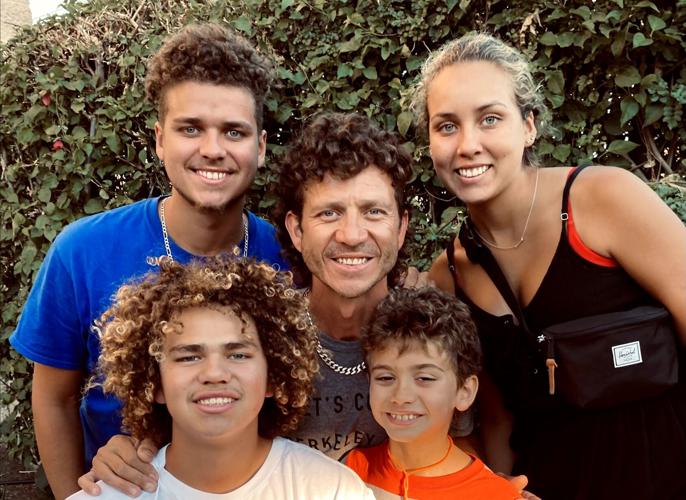
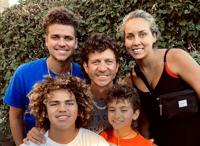
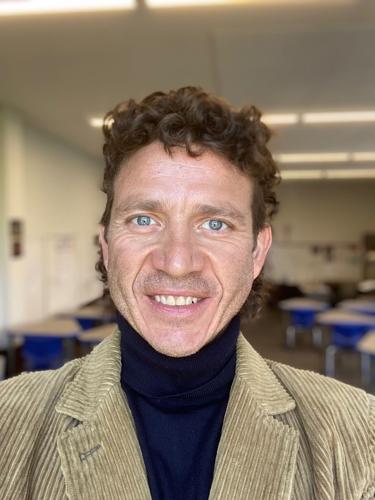
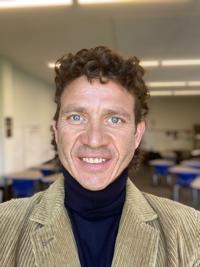





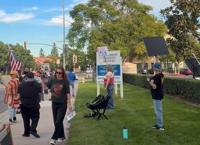


(0) comments
Welcome to the discussion.
Log In
Keep it Clean. Please avoid obscene, vulgar, lewd, racist or sexually-oriented language.
PLEASE TURN OFF YOUR CAPS LOCK.
Don't Threaten. Threats of harming another person will not be tolerated.
Be Truthful. Don't knowingly lie about anyone or anything.
Be Nice. No racism, sexism or any sort of -ism that is degrading to another person.
Be Proactive. Use the 'Report' link on each comment to let us know of abusive posts.
Share with Us. We'd love to hear eyewitness accounts, the history behind an article.